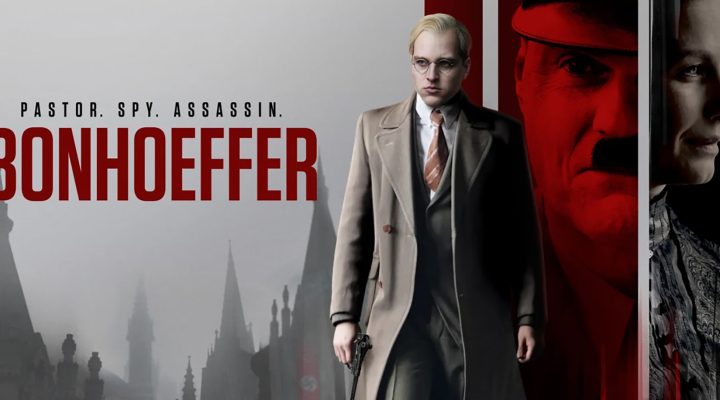

Over at First Things, Joel Looper, the author of a book on Dietrich Bonhoeffer, reviews the movie Bonhoeffer: Pastor. Spy. Assassin.
A taste:
Bonhoeffer was a towering figure of twentieth-century theology whose courage, leadership in the Confessing Church, and ultimate murder in the final days of World War II possess great pathos. Unscrupulous historians have thus been eager to enlist him in service of their pet theologies.
In the 1960s, the Death of God theologians appropriated Bonhoeffer based on selective readings of his enigmatic letters from prison—letters in which he wrote more about the wrath of God than anywhere else. In 2011, Eric Metaxas’s bestselling biography Bonhoeffer: Pastor, Martyr, Prophet, Spy denied Bonhoeffer’s (explicitly espoused) pacifism, simply ignored the prison letters abused by the Death of God movement, and recast Bonhoeffer the German Lutheran as an American evangelical. A few years later, Charles Marsh’s Strange Glory: A Life of Dietrich Bonhoeffer described a Bonhoeffer who had experienced a theological revolution under the tutelage of Reinhold Niebuhr and a sexual awakening under the gaze of another man, his best friend and biographer Eberhard Bethge. In Strange Glory, Bonhoeffer comes out looking like an American progressive; regrettably, it is by far the most responsible American treatment of his life we possess.
And this:
Like Metaxas’s biography, the film bends over backward to make Bonhoeffer sound like an American evangelical. Biblical catchphrases favored by evangelicals—such as “for such a time as this” (Esther 4:14) or “Here am I. Send me!” (Isa. 6:8)—are deployed in the film. The effect is chintzy rather than profound. The latter line is even spoken by Bonhoeffer when he tells Dohnányi that, yes, he will become an assassin.
As far as we know, none of these things actually happened. Yet all ended up in the film. All involve public action directed at the state or perhaps the culture, not at the church. And all involve potential violence.
By contrast, the historical Bonhoeffer’s brand of resistance was nonviolent and rarely directed toward the state. He was almost exclusively occupied by resisting the distortions of the gospel within the German church, many parts of which were pliant to the Nazis’ agenda. For example, Bonhoeffer fought the exclusion of Jewish clergy from the ministry, because on that question hung “the very substance of the Church itself.” The influence within the church of the so-called Führerprinzip angered him because it inspired idolatry.
Bonhoeffer thought Christians must be pacifists, and it’s not clear that he ever abandoned that belief. In fact, a commitment to nonviolence may have played into his decision to avoid the draft and instead associate himself with the Abwehr, military intelligence. Why? The fifth commandment: “Thou shalt not kill.”
This is hardly quietism. Rather, it’s a recognition that the church too has a politics, one that rarely fits the molds created by a state’s political parties. Sometimes those ecclesial politics look relatively normal. In circumstances like Bonhoeffer’s, however, they inevitably appear radical.
Some moviegoers, of course, will care about none of this. They will come to the film with no interest in Bonhoeffer himself, attracted only by the prospect of a wholesome anti-Nazi flick. They could do better than Bonhoeffer. The script is not tightly written, the characters remain underdeveloped, and some scenes are confusing, others jarringly didactic. In a characteristically awkward moment of expositional dialogue, Bonhoeffer is told that “the Nazis’ rise to power has made everyone a little anxious.” Then in the film’s final scene, as he is being hung at the Flossenbürg concentration camp, Bonhoeffer experiences a vision, perhaps of heaven. Unfortunately, the scene is less likely to elicit tears than guffaws.
Read the entire review here.